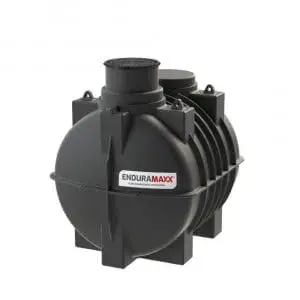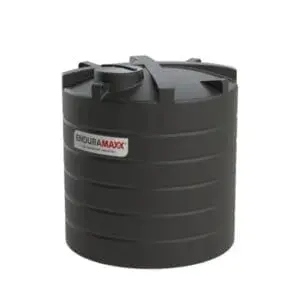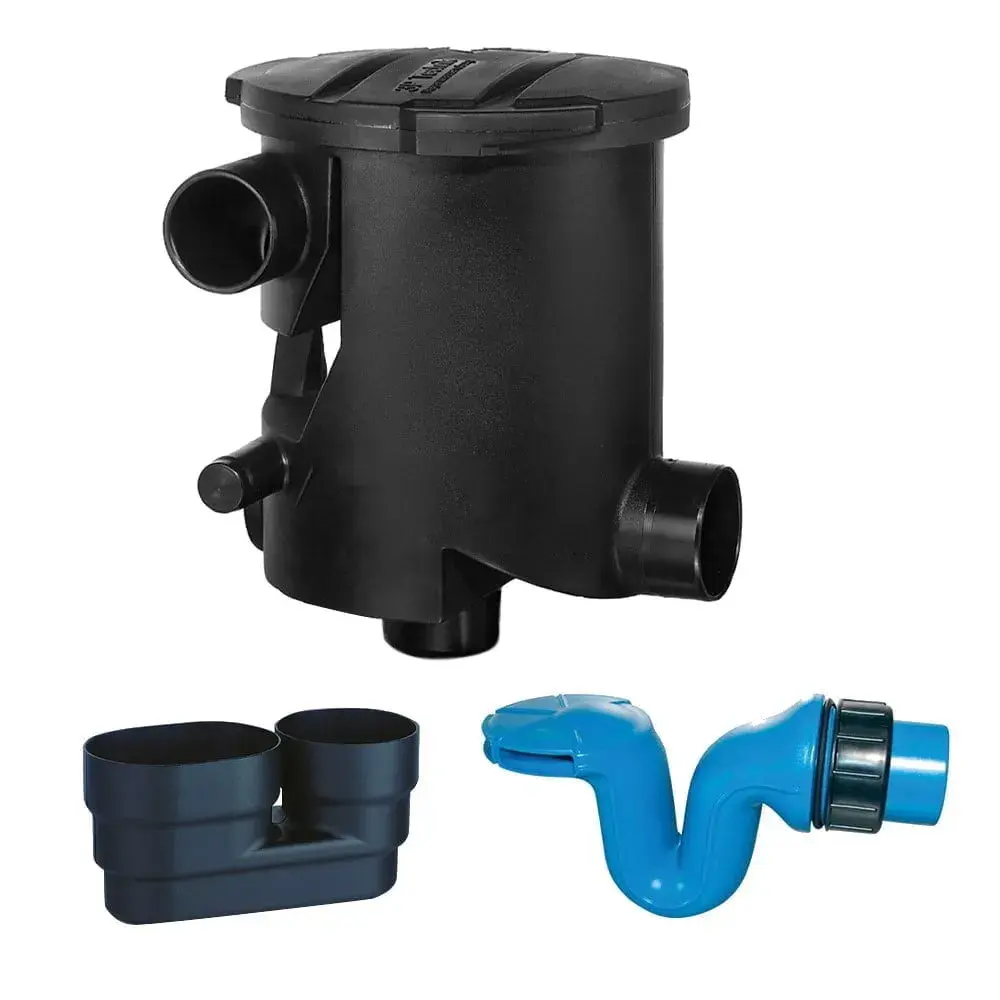
Commercial rainwater harvesting tank is a trending topic, but what does it involve, and does it really help with conservation? Here’s a quick update on everything you need to know!
What Is Rainwater Harvesting?
Rainwater harvesting systems collect the runoff from rainwater from roofs so that it can be filtered and used. The systems are not usually intended to produce drinking water. Instead, they are used to provide water for a number of non-drinking water uses; for example, watering gardens, flushing toilets, and operating washing machines in homes, as well as process water resources in industry, sprayer water, livestock water and small scale irrigation in agriculture.
In an approach that saves both money and resources, harvesting rainwater means valuable and increasingly scarce mains water can be saved for drinking, bathing, and making cups of tea!
What Are The Main Ecological Benefits of Rainwater Harvesting?
Mains water is expensive and energy-intensive to produce, recycle and treat. The water must be filtered through multiple treatment facilities before it is tested, stored, and finally transported via infrastructure that requires constant maintenance. This process is lengthy, and in a staggering 35% of cases results in the water being flushed down a toilet. Rainwater harvesting can be used to replace mains water for flushing and cleaning equipment, acting as a relatively effortless and highly cost-effective recycling solution.
How Else Does Rainwater Harvesting Benefit The Environment?
Excess rain can cause significant damage, especially in urban areas areas. Over-development removes soil and other natural drainage solutions, so heavy rainfall can easily lead to major flooding events – as it increasingly does in the UK. When rainwater is collected and used, the risk of damage from overflowing sewars and run-off is reduced and to some extent mitigated. Many high-risk towns are now implementing large-scale rainwater harvesting as part of their flood-defence systems, a strategy that has been backed by scientific research.
Are Rainwater Conservation Tanks Safe?
There are two safety concerns with rainwater harvesting: the rainwater itself, and the storage tanks used to collect it. Rainwater harvesting systems collect water that runs off the roofs of buildings. As such, the first phase of collection will contain debris and other contaminants leached from the air, including car exhaust particles.
Commercial and agricultural systems are designed to safely flush the first runoff and include advanced filtration units to ensure that the rest of the collection is clean. Rainwater tanks are made from UV safe plastics that reduce the risk of any biomatter from developing into a hazard, and easy cleaning ensures that maintenance is straightforward. Additionally, the CAT5 air gap system prevents rainwater from mixing with mains water, so cross-contamination is impossible. Therefore, rainwater conservation represents one of the safest methods of ecological water management.
Can I Install a Rainwater Harvesting Tank On My Site?
Unless the roof is completely flat, rainwater harvesting is possible. There are three main types of system: direct pumped, indirect pumped, and indirect gravity. Each of these are appropriate for different building designs and application requirements. For instance, using conserved water to flush a toilet requires less pressure than the demands of an industrial washing machine, so gravity is often sufficient. Rainwater harvesting systems can be aided by pumps to increase the water pressure, so when opting for the approach always check with an experienced provider to ensure that the system is optimised for purpose.
Find Out More
Water conservation can reduce costs and improve efficiency whilst benefitting the environment. The quality of the rainwater harvesting tank system makes a difference to quality, safety, and convenience, so for expert advice get in touch with Enduramaxx today, and ask about our range of durable fluid management products.
Image Source: Unsplash
Posts By Topics
- Blog (303)
- Chemical Storage Tanks (118)
- Chemical Dosing Tanks (114)
- Chemical Tanks (114)
- Water Tanks (58)
- Rainwater Harvesting Tanks (43)
- Vertical Rainwater Tanks (31)
- Vertical Storage Tanks (31)
- Cone Bottom Tanks (19)
- Conical Cone Tanks (18)
- Rainwater Harvesting (17)
- Water Bowsers (15)
- Horizontal Tanks (14)
- Potable Water Tanks (13)
- Farming (9)
- Case Studies (8)
- Industrial Storage Tanks (7)
- Liquid Fertilser Storage Tanks (6)
- WRAS Approved Potable Tanks (6)
- Wine and Beer Production (6)
- Horizontal Transport Tanks (5)
- Microbrewery (5)
- Rainwater (5)
- Category 5 Break Tanks (4)
- Cider Production (4)
- Mixer Tanks (4)
- Molasses Tanks (4)
- Polyethylene tanks (4)
- Rainwater Filter Kits (4)
- SPECIALIST & BESPOKE TANKS (4)
- Bunded Tanks (3)
- Slimline Tanks (3)
- WRAS Approved (3)
- Clarification Tanks (2)
- Crosslinked Polymer Tanks (XLPE) (2)
- Fertiliser Tanks (2)
- Sump Tanks (2)
- Tank Installation (2)
- Water Butt (2)
- underground water tanks (2)
- ACCESSORIES & FITTINGS (1)
- ATV & UTV SPRAYING UNITS (1)
- Above Ground Effluent Tanks (1)
- Bespoke Tank Frames (1)
- Category 5 Turret (1)
- Caustic Soda Tanks (1)
- Closed Top Bunded Tanks (1)
- Craft beer (1)
- Effluent Tanks (1)
- Enduramaxx (1)
- Ferric Chloride Tanks (1)
- Fire Safety Regulations (1)
- Fire Sprinkler Water Storage Tanks (1)
- Industrial Water Tank (1)
- Open Top Bunded Tanks (1)
- Open Top Cone Tanks (1)
- Open Top Vertical Tanks (1)
- Polyethylene Potable Water Tanks (1)
- Polyvinylidene Fluoride (PVDF) Tanks (1)
- Polyvinylidene Fluoride Tanks (PVDF) (1)
- Pressure Washers (1)
- Pro Series Spot Sprayers (1)
- RWH (1)
- Sodium Hydroxide Storage Tanks (1)
- Sprayer Fill-up Tanks (1)
- Uncategorised (1)
- liquid fertiliser tank (1)
Sign up to the newsletter
enduramaxx.marketing
Related Posts
What is Category 5 (CAT 5) Water Supply? And what does category 5 mean?
What is Category 5 (CAT 5) Water Supply? And what does category 5 mean? Fluid category 5 (CAT 5) is...
How To Improve Water Quality For Pigs And Comply With Water Regulations
Successful pig farming is heavily reliant on water. It’s not surprising given that piglets consist...
What Are WRAS Fluid Categories? Level Of Contamination Risk
What are WRAS fluid categories? The WRAS Fluid Category identifies the level of contamination risk,...
Related Products
From £1,080.00 inc. VAT
£900.00 exc. VAT
From £1,344.00 inc. VAT
£1,120.00 exc. VAT
From £768.00 inc. VAT
£640.00 exc. VAT
£480.00 inc. VAT
£400.00 exc. VAT






